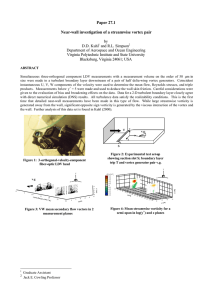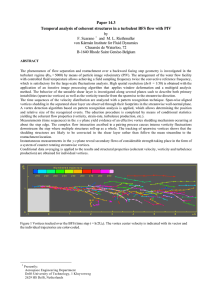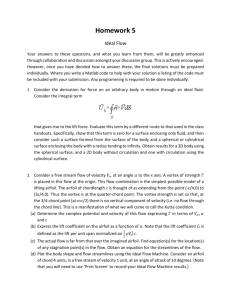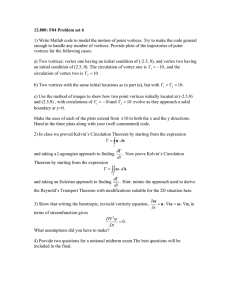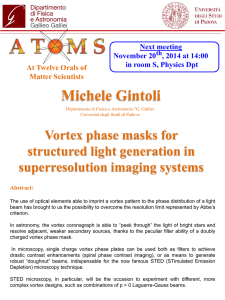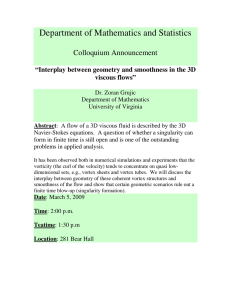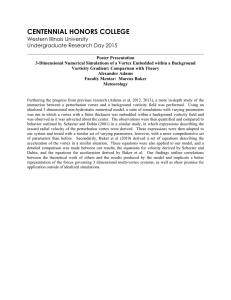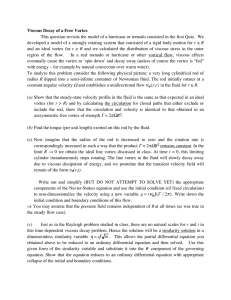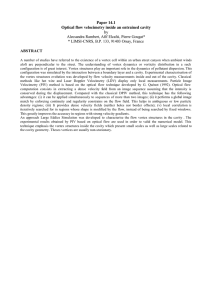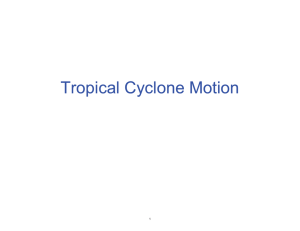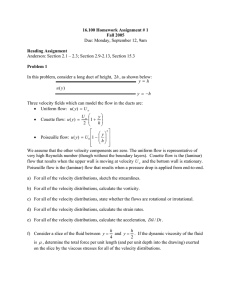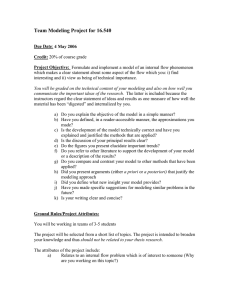Paper 4.5
advertisement
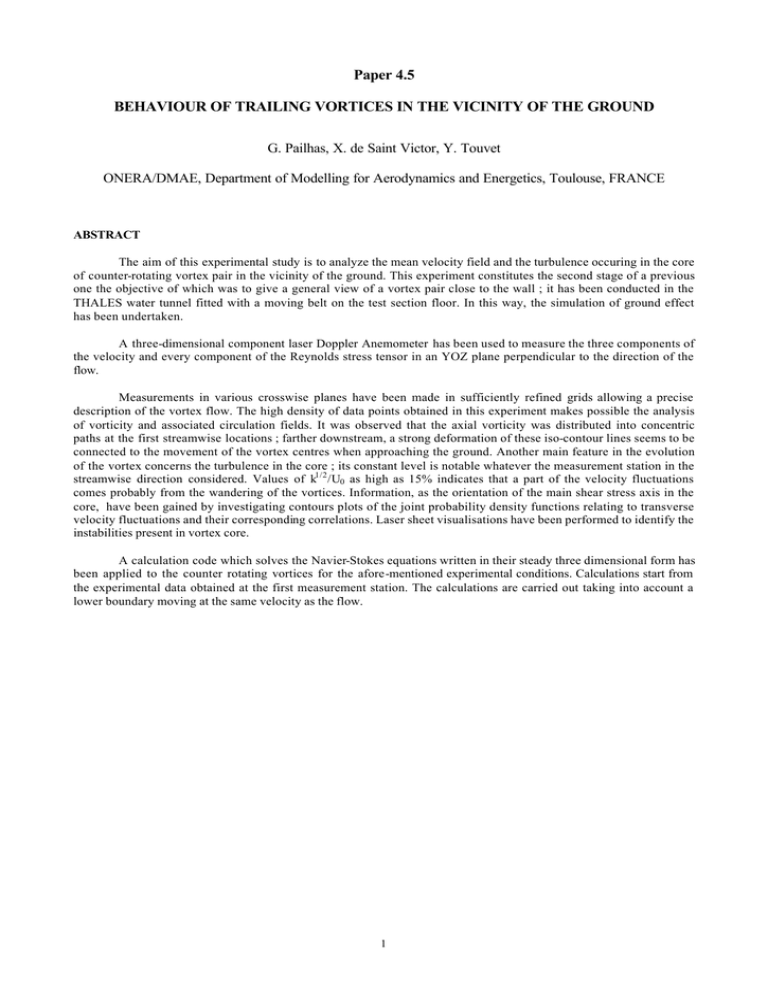
Paper 4.5 BEHAVIOUR OF TRAILING VORTICES IN THE VICINITY OF THE GROUND G. Pailhas, X. de Saint Victor, Y. Touvet ONERA/DMAE, Department of Modelling for Aerodynamics and Energetics, Toulouse, FRANCE ABSTRACT The aim of this experimental study is to analyze the mean velocity field and the turbulence occuring in the core of counter-rotating vortex pair in the vicinity of the ground. This experiment constitutes the second stage of a previous one the objective of which was to give a general view of a vortex pair close to the wall ; it has been conducted in the THALES water tunnel fitted with a moving belt on the test section floor. In this way, the simulation of ground effect has been undertaken. A three-dimensional component laser Doppler Anemometer has been used to measure the three components of the velocity and every component of the Reynolds stress tensor in an YOZ plane perpendicular to the direction of the flow. Measurements in various crosswise planes have been made in sufficiently refined grids allowing a precise description of the vortex flow. The high density of data points obtained in this experiment makes possible the analysis of vorticity and associated circulation fields. It was observed that the axial vorticity was distributed into concentric paths at the first streamwise locations ; farther downstream, a strong deformation of these iso-contour lines seems to be connected to the movement of the vortex centres when approaching the ground. Another main feature in the evolution of the vortex concerns the turbulence in the core ; its constant level is notable whatever the measurement station in the streamwise direction considered. Values of k1/2 /U0 as high as 15% indicates that a part of the velocity fluctuations comes probably from the wandering of the vortices. Information, as the orientation of the main shear stress axis in the core, have been gained by investigating contours plots of the joint probability density functions relating to transverse velocity fluctuations and their corresponding correlations. Laser sheet visualisations have been performed to identify the instabilities present in vortex core. A calculation code which solves the Navier-Stokes equations written in their steady three dimensional form has been applied to the counter rotating vortices for the afore-mentioned experimental conditions. Calculations start from the experimental data obtained at the first measurement station. The calculations are carried out taking into account a lower boundary moving at the same velocity as the flow. 1
